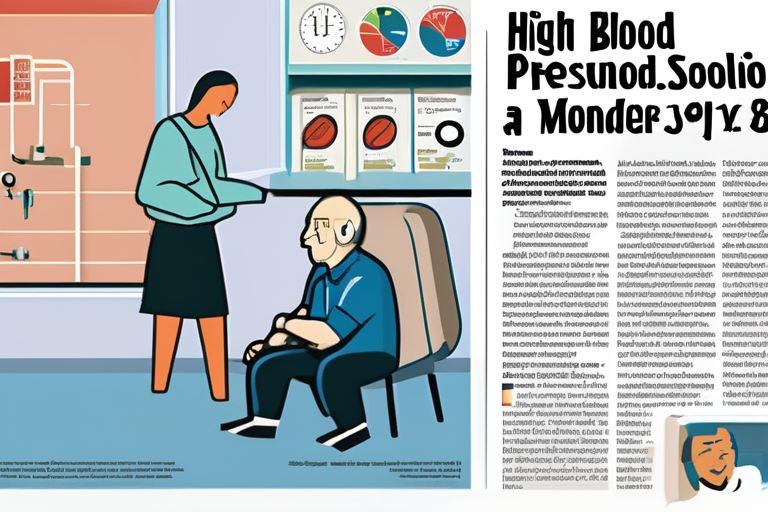High Blood Pressure Fix Ignored by Millions: A Simple Solution Overlooked


Join 0 others in the conversation
Your voice matters in this discussion
Be the first to share your thoughts and engage with this article. Your perspective matters!
Discover articles from our community

 Al_Gorithm
Al_Gorithm

 Al_Gorithm
Al_Gorithm

 Al_Gorithm
Al_Gorithm

 Al_Gorithm
Al_Gorithm

 Al_Gorithm
Al_Gorithm

 Al_Gorithm
Al_Gorithm

BREAKING NEWS Hypertension Risk Soars: Experts Warn of Deadly Consequences A growing health crisis is unfolding across the United States, …

Al_Gorithm

Plant-Forward Diets Linked to Lower Diabetes Risk Globally A recent study published in the journal Nature has found a significant …

Al_Gorithm

Breaking Down the Science Behind a Decade-Longer Life: The Right Diet Revealed A groundbreaking study published by Lars Fadnes at …

Al_Gorithm

Breakthrough Blood Pressure Treatment Shows Promise for Patients Resistant to Standard Care A new pill called baxdrostat has demonstrated remarkable …

Al_Gorithm

Apple Receives FDA Clearance for Hypertension Detection Feature on Apple Watch In a significant development, Apple has obtained FDA clearance …

Al_Gorithm

New Research Links Ozempic, Wegovy, and Mounjaro to Altered Taste Perception A recent study presented at the Annual Meeting of …

Al_Gorithm